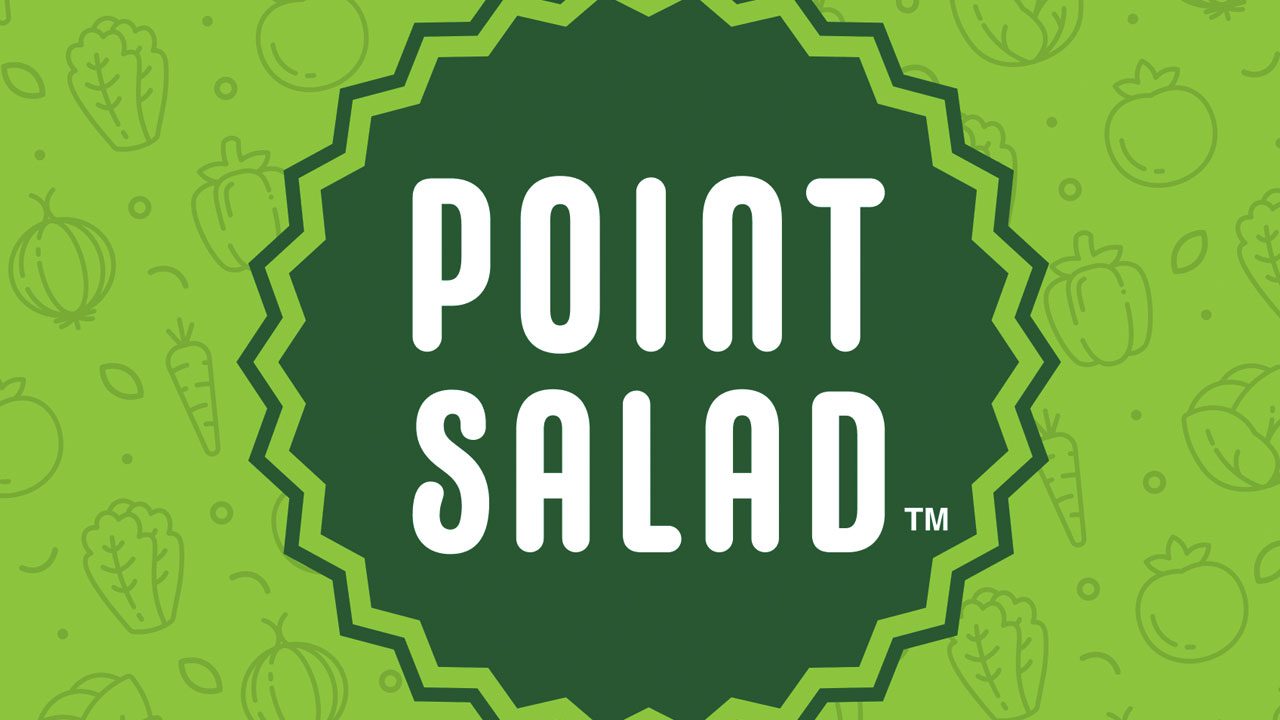I’m a sucker for filler games. The mere concept of having an engaging game using very little components and travel size friendly brings back the days when I was younger playing Crazy 8s, President, or UNO with my friends and family. Nowadays with modern game design philosophy, we have seen several interesting card-based filler games such as Sushi Go, The Mind, Pairs, Skull King, and Cockroach Poker Royal.
Another one to add to this list is going to be AEG’s Point Salad. Besides being a clever pun on board game slang, it’s an interesting game that manages to innovate the Set Collection genre with its amazingly simple rules. However, interesting games don’t always mean good games, so where does Point Salad fall into here? Let’s find out.
I usually try to avoid explaining the rules step by step, mainly because everyone does it and it’s not the most exciting thing to write about. However, I will make an exception since the rules are incredibly easy to digest.
With your deck of 108 double-sided cards, you are going to take some of these cards out of the game depending on the number of players (or if you are playing with a full six-player count, nothing is removed). Give them a good shuffle and create three somewhat even decks with the “Point Salad” side face up. Once you have three decks, flip the top two cards from each deck to show the Veggie side to form a column under each deck. This is your “veggie market.”
Two Paragraph Explaination
On your turn, you have two options: Take two cards from the Veggie market and add it to your play area, or take one of the point salad cards and add it to your play area. As a free action, you can also flip one of your Point Salad cards into the Veggie side with the icons on the corner of the card showing you what’s on the other side. After you have done your action, it is the next player’s turn. You keep doing this until all the cards are gone.
Players will then calculate their score based on the Point Salad cards they have acquired. Each Point Salad card tells the player how they will score, such as having the most Carrots or each Lettuce is worth 3 points but each Onion and Pepper cards makes you lose 1 point. Every single Point Salad card in this game is unique, so there are 108 ways to score points. Whoever has the highest amount of points, wins.
That’s it. Nothing else.

Complexity Doesn’t Always Breed Greatness
To be blunt, it’s very rare to see a game this simple to be released in a market that seems to be drowning in a sea of complexity and grey plastic dolls from Kickstarter. Point Salad takes a “less is more” approach with its simplistic ruleset and simple components while delivering a solid Set Collection filler that can easily compete with other light set collection games such as Cat Lady and Sushi Go.
The major reason why I am so entangled by the game is, unlike other set collections games, there is no linearity with the value of the cards. Most set collection games will often have cards such as “if you have the most of this card, you score points” or “for every two cards of this type, you score this many points for each pair” and so forth. Point Salad is a bit smarter than that.
Yes, Point Salad does have those types of ways to score points but the key difference is the players choose these goals for themselves. The value of each of the six vegetable types isn’t determined by the game’s mechanism, but the players’ decisions collectively as a group. Furthermore, the point value of the veggie types is exclusive to each player on the table.
What this means is you can set yourself to make sure that Peppers and Lettuce are worth points to you, but Onions will make you lose points. Other players on the table will know this and will need to figure out a way to “hate draft” to prevent you from scoring more points or get Point Salad cards that will perform better than what you have and take advantage of the current situation.
Timing Is Everything
Another obstacle to overcome is timing. Get too many veggie types early on and players can easily determine which Point Salad cards will be valuable to you. If you go for numerous Point Salad cards at the start, all the Veggie cards that you might need to score points could already be taken by other players. Timing is crucial in Point Salad.
While this game is a very tight package, there are some loose ends that need to be tied up here. Much like other set collection games, Point Salad will feel very repetitive after a few plays, especially when you consider most of the Point Salad cards are variations of the five or six types of goals. Honestly, it’s hard to label this as a fault since this is the fault of the genre itself. Other rules-light set collection games such as Sushi Go and Cat Lady also have this issue. It’s like complaining that Social Deduction games require you to talk to other players; it’s just part of the nature of the genre.
The bigger red flag is the player scaling. This game says it can play up to 6 players, but the higher player counts push the game into a direction that makes the 20 minutes feel a bit hollow. When you play with smaller player counts such as 2 or 3 players, your turn will have a great impact on everyone on the table and when your turn comes around, the state of the game hasn’t changed too much. On the flip side, higher player counts such as 4 to 6 players, hate drafting is a bit fruitless since you are only messing with the players next to you in turn order and the board state changes so much that you are feeling like you are playing some weird variation of a cardboard slot machine that doesn’t use cherries.
After all that, is it worth it? I’m going to give two different answers.
If you already have a light set collection game like Sushi Go, I don’t see the reason to go out and buy this. Point Salad is the superior game out of the group, but not nearly to the extent to warrant a new purchase. What’s currently out there in this genre is damn good and spending an extra $15 bucks to get yet another variation of the same type of game isn’t something I would recommend. Then again, I like to keep my collection lean so that’s likely my bias talking.
However, if your game library is missing a short set collection game, Point Salad is something I would definitely consider. It’s not an expensive game and it is extremely easy to teach to the non-gamers in your social circle with a very small time commitment. While the game is repetitive, Point Salad does an amazing job forcing the players into tough decision making such as what goals to go for, what sets to acquire, and the timing all of their actions within the 20-minute timeframe. In short, this is a very impressive game under a very deceitful small package that makes it an ideal gateway game.












Add Comment